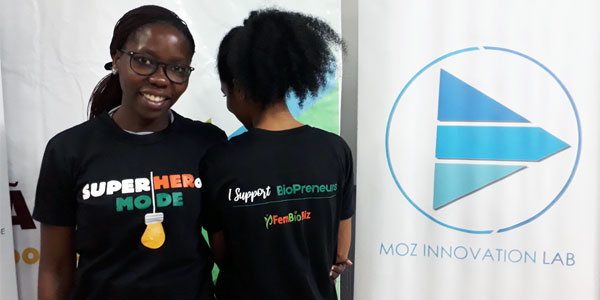Business for good
- Charlotte Matthews
Wits is exploring the opportunities created by social enterprises that focus on addressing local, regional and global challenges.

The stereotype of the greedy, exploitative capitalist, who has been around since the Industrial Revolution, is being turned on its head by a new breed of “social entrepreneur”.
A social enterprise is a business, not a charity organisation. However, its first objective is to fulfil a social need, rather than satisfy an indulgence. It may make a profit, but it can also be supported by grants. It is characterised by innovation, a sense of purpose and a business-like approach.
In South Africa, there is a vast need for services associated with health and education, but government resources and private sector donations are inadequate to meet it. This is where the opportunity lies.
Professor Boris Urban of the Wits Business School (WBS), who launched social entrepreneurship at the School, says that understanding the social entrepreneurship landscape is difficult, since South Africa does not have a single consolidated legal structure for social enterprises and there is no comprehensive database on social enterprises registered and available in the country. Despite these hurdles, scholarly and practitioner interests in social entrepreneurship is growing and it has emerged as a distinct field of study.
Social enterprises and jobs
In 2016 and 2017, the Gordon Institute of Business Science gathered data from 453 survey respondents to find out more about social enterprises in the country. Amongst its findings was that these organisations largely focus on developing skills and literacy, and working with disadvantaged groups, including youth, women and particular communities. Only about one-fifth made a profit or a surplus and those that did, tended to reinvest it.
While these enterprises remain modest in scale, they do provide an opportunity for unemployed youth to empower themselves and those around them. Recognising this, the Department of Trade, Industry and Competition is developing a Social Economy Policy to strengthen the sector.
“It is estimated that if social economy jobs increased by an achievable 2% every year, it could add 250 000 jobs to the economy by 2030,” said the Deputy Minister of Trade, Industry and Competition, Nomalungelo Gina at a meeting in 2020.
Innovative and entrepreneurial
Urban’s work at the WBS has highlighted how social entrepreneurs in South Africa attempt to create systemic changes and sustainable improvements by being innovative and entrepreneurial.
A good example of a social entrepreneur is WBS alumna, Elena Gaffurini, who founded DEV Consulting in Mozambique. While studying at the WBS, the University invited her to become involved with establishing Startup Nations South Africa. She also managed the southern African region as project manager for the Africa Engagement portfolio of the Southern African Research and Innovation Management Association.?In 2015 she became a World Economic Forum Global Shaper – a network of inspiring young people under the age of 30, working together to address local, regional and global challenges.
Now DEV Consulting is helping entrepreneurs to address the need for food security and nutrition in Africa. Its activities include designing projects to scout, train, incubate and accelerate local, socially relevant business solutions, and attract resources. In addition, the firm has been supporting international non-profit organisations to develop a social-business arm to improve their financial sustainability.
Choosing business models
Gaffurini says that the social enterprise model is relevant everywhere, but in lower income countries the gaps are more obvious, so social enterprises may have a larger base of users or consumers. In developed countries, a social enterprise may prove its value through its customer proximity, pricing strategy or other aspects.
“Social entrepreneurs face the same challenges as traditional enterprises. In many developing countries, they may face the additional challenge that they try to compete in donor-funded sectors, where a significant portion of funding may be directed towards NGOs that are by law tax-exempt,” she says.
Most countries lack legislation for social enterprises, so these entrepreneurs must choose whether they follow the same laws as private sector firms or operate as non-profit firms. “However, operating as a non-profit may hinder their ability to attract capital,” she explains. “It is really up to the social entrepreneur to develop a viable business model, to prove the concept by finding customers, and then to develop a prototype.”
The WBS is currently focusing on several research themes that drive PhD topics, start-ups, social ventures and curricula for courses. These include institutional forces in emerging economies and their impact on social entrepreneurs, the scalability of social enterprises in South Africa and food and energy security through innovative social enterprise development.
“WBS students, after having been exposed to social entrepreneurship courses in the Master’s degree in Entrepreneurship and the MBA,?have moved into incubation, providing business support services and financial advice, to ensure the investment readiness of innovative social enterprises,” Urban says.
“Through courses and practical research projects, WBS students are fostering strong networks between various ecosystem actors including academic institutions, industry sector clusters, government and corporates, to nurture the capabilities of social enterprises.”
In 2018, the Centre for African Philanthropy and Social Investment was established at the WBS. The Centre has entrenched pan-African ties in academic, funding and NGO spheres,?has collaborated on student projects and has also delivered executive education programmes. The Centre has also been involved in numerous other initiatives with impact, such as the Philanthropy Secretariat in Liberia, the Rwanda Philanthropy Strategy and the Sustainable Development Goals Platforms in countries such as Ghana, Kenya and Zambia.
- Charlotte Matthews is a freelance writer.
- This article first appeared in?Curiosity, a research magazine produced by?Wits Communications?and the?Research Office. Read more in the 14th issue, themed: #Wits100 where we celebrate a century of research excellence that has shaped today and look forward to how our next-generation researchers will impact the next 100 years.
